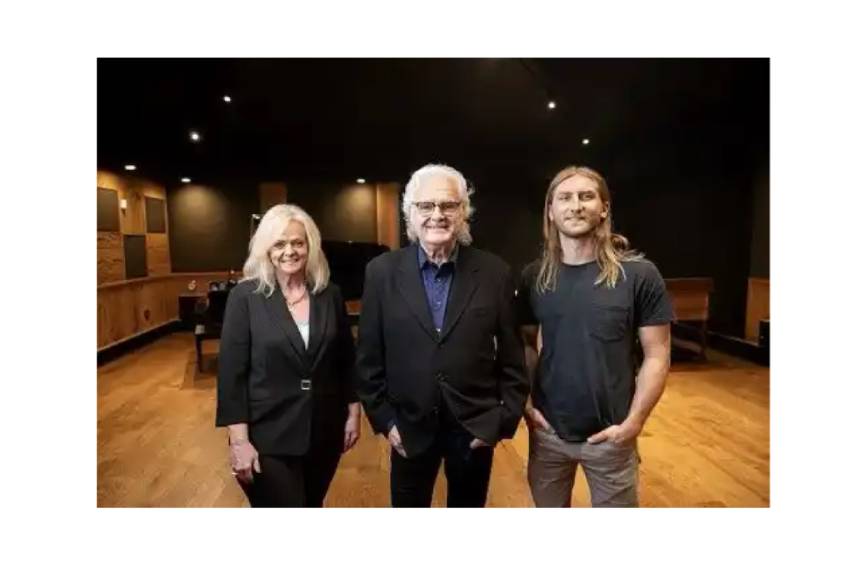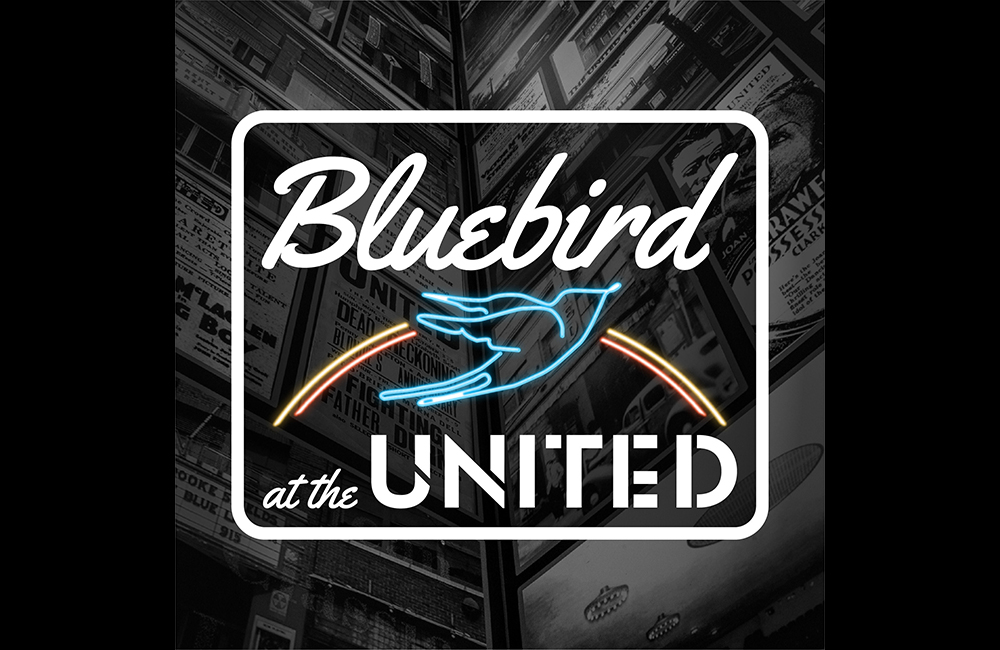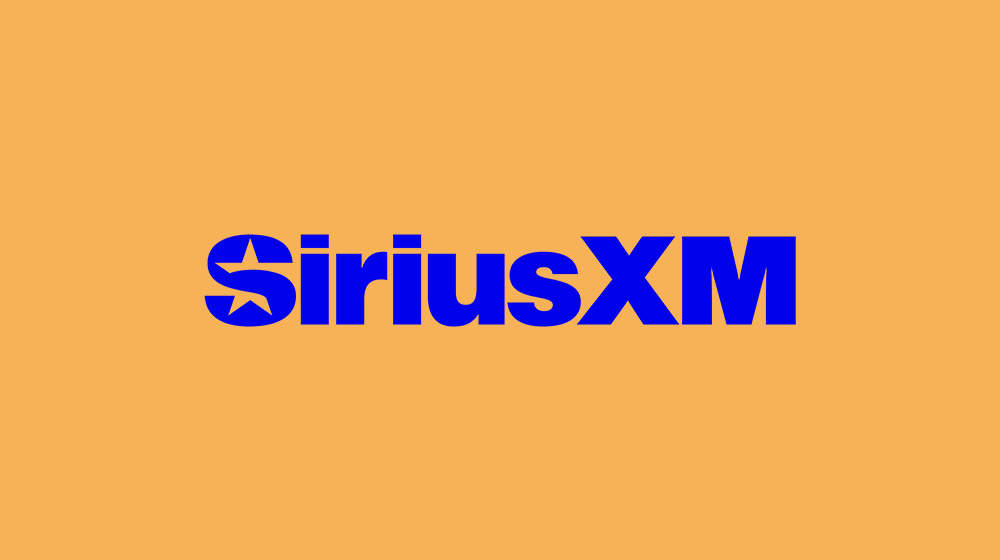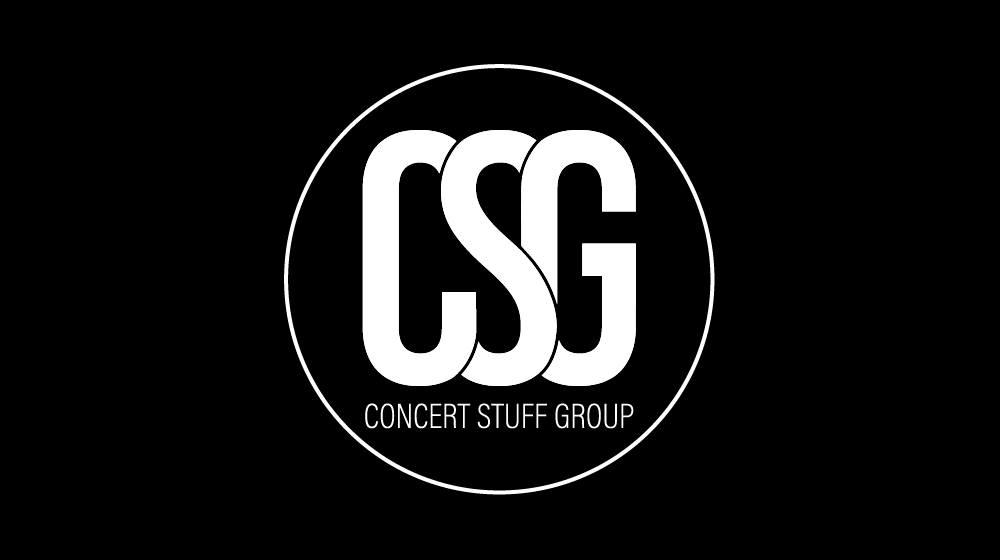
(CelebrityAccess News Service) — Top musical talent will be appearing at the International CES consumer products and technologies show January 8-11 in Las Vegas, Nev.
Several International CES exhibitors plan to house major entertainment in their booths. Sirius Satellite Radio (booth #3622) has a full schedule of musical acts throughout the show:
January 8:
3 Doors Down – 1:00-2:00 p.m.
Buddy Guy – 2:00-3:00 p.m.
Buddy Jewell – 3:00-4:00 p.m.
Trace Adkins – 4:00-5:00 p.m.
January 9:
LeAnn Rimes – 1:00-2:00 p.m.
Ricky Skaggs – 2:00-3:00 p.m.
Johnny Lang – 3:00-4:00 p.m.
Lynyrd Skynyrd – 4:00-5:00 p.m.
January 10:
Ray Herndon with special guest Jessi Colter – 1:00-2:00 p.m.
The Bangles – 2:00-3:00 p.m.
Ziggy Marley – 3:00-4:00 p.m.
Joe Jackson – 4:00-5:00 p.m.
–Bob Grossweiner and Jane Cohen
 Attendance Down, Grosses Up On Broadway
Attendance Down, Grosses Up On Broadway
 NEW YORK (AP) — Still feeling the effects of the Sept. 11, 2001, attacks and an uncertain economy, Broadway saw fewer people going to the theater in 2003, although the box office was up.
NEW YORK (AP) — Still feeling the effects of the Sept. 11, 2001, attacks and an uncertain economy, Broadway saw fewer people going to the theater in 2003, although the box office was up.
The projected total gross for 2003 was expected to reach $730 million, a 3.2 percent climb from $707 million in 2002 and $664 million the year before, according to preliminary figures released Monday by the League of American Theatres and Producers.
No doubt that figure was helped by the $100 top ticket price for many musicals and the $80 — or more — price tag for the best seats at most plays.
Yet the number of theatergoers seeing a Broadway show was expected to drop to 11.2 million, down from 11.41 million in 2002 and off from a record 12.1 million in 2000.
"If you were grading the year, I think you would give it a solid `B,'" Jed Bernstein, league president, said. "Attendance is off a little bit, whether you look at it on a 12-month basis or on a season-to-date basis. It's off by about 4 percent.
"I think that's largely because we had (only) a few number of shows opening over the summer and in September and October and a larger number opening toward the end of October and into November. So we haven't been able to appreciate the full impact of all that yet."
Despite the quick closings of such productions as "Oldest Confederate Widow Tells All," "Six Dance Lessons in Six Weeks" and "Bobbi Boland" (which never got past previews), others have prospered including "The Boy From Oz," "Wicked" and "Cat on a Hot Tin Roof."
"On a business front, things are OK," Bernstein said. "Theaters are reasonably full. There are the usual schedule of January closings, although not more so than normal."
And after the first of the year, there will be at least three anticipated musicals — revivals of "Fiddler on the Roof" and "Assassins," as well as the London hit "Bombay Dreams."
"I still think for the 2003-04 season, which will end in June, we'll be looking at virtually the same attendance statistics as last year, which was about 11.4 million," Bernstein said. "I think it will be very close, and grosses will be up a little bit, too."
——
 FCC OKs News Corp. Purchase of DirecTV
FCC OKs News Corp. Purchase of DirecTV
 WASHINGTON (AP) — News Corp. won federal approval to take over the satellite television provider DirecTV, a move that federal regulators say will mean more competition but opponents contend will speed media consolidation.
WASHINGTON (AP) — News Corp. won federal approval to take over the satellite television provider DirecTV, a move that federal regulators say will mean more competition but opponents contend will speed media consolidation.
The Republican-controlled Federal Communications Commission voted along party lines, 3-2, to approve the $6.6 billion deal. Following the FCC's action, announced Friday, the Justice Department said it would not oppose the takeover of the nation's largest satellite TV provider by News Corp., headed by Rupert Murdoch.
"News Corporation has a history of taking significant risks and introducing new and innovative media services," FCC Chairman Michael Powell said. "Enhanced competition will increase pressure to improve service and lower prices for both cable and satellite television subscribers."
But one of the two Democrats on the commission, Michael Copps, said the deal would reduce competition, not enhance it.
"Where is the logic — where is the public interest benefit — of giving more and more media power to fewer and fewer players?" he said.
The FCC approval carries with it some conditions.
News Corp. must agree to arbitration to solve disputes with companies that carry its broadcast and cable channels, such as cable companies and other satellite providers. It also must treat all stations equally, not tilt in favor of its Fox broadcasting network and cable channels such as FX.
The arbitration was to alleviate concerns that Fox would take its network programming, which includes major league baseball and football, off cable systems to encourage viewers to subscribe to DirecTV. News Corp. agreed not to pull either the network programming or its regional sports networks while a dispute was being arbitrated.
Democratic commissioner Jonathan Adelstein said he dissented because there was one condition that was not imposed: requiring DirecTV to provide local channels via satellite to all 210 television markets, especially those in rural areas where over-the-air TV is unavailable.
"We hear a lot of talk about localism," Adelstein said. "Here, we had the opportunity to do something about it. Instead, we let News Corp. gain all the benefits of this merger while asking them to do nothing in return for rural America, or anyone else for that matter."
Under the deal announced in April, News Corp. would acquire 34 percent of DirecTV parent Hughes Electronics, a subsidiary of General Motors Corp. The deal would give News Corp. the largest block of shares in Hughes and controlling interest in DirecTV, which has more than 11 million subscribers.
"DirecTV is already a leader in satellite television; we want to make it such a compelling service for viewers that it becomes the logical first choice of all consumers looking for America's best pay TV," said Murdoch, News Corp. chairman, and former co-chief operating officer Chase Carey.
Some consumer groups opposed the deal, saying it would drive up the price of cable and satellite services and further reduce competition by shrinking the number of media companies.
"Given Rupert Murdoch's Fox Corporation's already bloated holdings in over-the-air TV and cable programming, the FCC should have rejected this deal," said Jeff Chester, executive director of the Center for Digital Democracy, a media watchdog group.
——
On the Net:
FCC's News Corp.-DirectTV site
 Wal-Mart Music Download Service Mediocre
Wal-Mart Music Download Service Mediocre
 SAN FRANCISCO (AP) — Wal-Mart Stores Inc.'s foray into downloadable music sales is a respectable effort. The song selection is decent, though pesky playback restrictions and a few online kinks sound a few false notes.
SAN FRANCISCO (AP) — Wal-Mart Stores Inc.'s foray into downloadable music sales is a respectable effort. The song selection is decent, though pesky playback restrictions and a few online kinks sound a few false notes.
In launching its music service, Wal-Mart enters a world ruled by Apple Computer Inc., purveyor of the iTunes online song service and the iPod music players. The landscape is thick with iPods waiting for tunes.
So while Wal-Mart's price is right — songs for 88 cents apiece — it's only for PC users equipped with Windows 98 or better. There's no support for Apple or Linux machines.
For your 88 cents you'll get a file in the Windows Media Audio format, stuffed with some license requirement verification that "phones home" to make sure you're the authorized listener who has rightfully purchased the tunes. You can also buy a complete album for $9.44. That's cheaper by 11 cents per song and half a buck per album than iTunes and competitors MusicMatch and Napster, both of which, like Wal-Mart, use the WMA format.
Getting started is easy enough. Go to Walmart.com and click the "Movies & Music" tab and then the music downloads link on the next page.
You can search Wal-Mart's database of songs by artist, album or song title. The 80,000-CD catalog is thick with country, rap and pop, but thin around the edges. There doesn't appear to be much classical at all; my search for Mozart and Beethoven came up empty.
That said, there is lots of Nelly, Britney and Beyonce.
After setting up an account with a user name, password and credit card number, I was ready to shop.
I liked Spears' latest ditty with Madonna, "Me Against the Music," and it was available so I started my speedy DSL download. In less than 30 seconds I got my song file and it was ready to play.
The sound quality of the files is good, 128 kilobits per second. That's not near the digital detail of a store-bought CD, but good enough for the average music fan.
The top 100 downloads listed by Wal-Mart reads like a who's who of pop music. But kids looking for surly rap tunes laden with profanities are out of luck here. Only clean, edited version of such songs are available. I counted 14 tracks among Wal-Mart's top 100 that came "clean" instead of the "dirty" album versions, including Murphy Lee's "Shake Ya Tailfeather" and Staind's "So Far Away."
There are limitations to what you can do with your downloaded music. Wal-Mart allows you to download the songs to only three different computers. I downloaded some songs at an office computer, and had to re-download them at home (at no additional charge).
Wal-Mart also limits to 10 the number of times you can burn the original downloads to a CD. However, I was easily able to burn four purchased downloads to a blank CD, then rip the songs to the MP3 format and convert them to "wav" files and do whatever I wanted with them — on a multitude of devices.
Here's one catch that bugged me. The songs I listened to at work would not play initially after I downloaded them again at home. I had to call Wal-Mart's toll-free customer service number and have the license reactivated for that song for my second computer.
If I had a third computer, I'd have to call again.
There has to be a way to automate that process. Consumers are going to expect more consistency and ease of use.
Another complaint is the 30-second song preview feature. Sometimes it worked, other times it didn't.
Wal-Mart says its music service "is in beta." There was a time when "beta" meant a product or project was strictly in test mode, but Wal-Mart is taking hard-earned customer cash during its "beta" period.
 CCC To Periodically Sell Debt
CCC To Periodically Sell Debt
 (CelebrityAccess News Service) – Clear Channel Communications Inc. filed with the U.S. Securities and Exchange Commission to periodically sell up to $3 billion in debt, stock and other securities. Net proceeds from the sale will be used for general corporate purposes, including debt repayment, the company said in a shelf registration statement.
(CelebrityAccess News Service) – Clear Channel Communications Inc. filed with the U.S. Securities and Exchange Commission to periodically sell up to $3 billion in debt, stock and other securities. Net proceeds from the sale will be used for general corporate purposes, including debt repayment, the company said in a shelf registration statement.
The filing is designed to give companies advance regulatory permission to sell securities in one or more offerings. Terms and conditions are generally determined at the time of sale. –Jane Cohen and Bob Grossweiner
 U.S. Ends Online Music Antitrust Probe
U.S. Ends Online Music Antitrust Probe
 WASHINGTON (AP) — The Justice Department on Tuesday ended its two-year-old antitrust investigation into the music industry's online ventures, finding ample competition exists in today's world of digital music.
WASHINGTON (AP) — The Justice Department on Tuesday ended its two-year-old antitrust investigation into the music industry's online ventures, finding ample competition exists in today's world of digital music.
"Consumers now have available to them an increasing variety of authorized outlets from which they can purchase digital music and consumers are using those services in growing numbers," said R. Hewitt Pate, assistant attorney general for the antitrust division.
The investigation, begun in 2001, involved joint ventures put together by major record labels, pressplay and MusicNet, to distribute music over the Internet. Before that, the labels had authorized no Internet businesses to provide consumers a way of searching and downloading songs.
The Roxio software company recently bought pressplay from Sony Music Entertainment and Universal Music Group. MusicNet is a venture by Warner Music Group, EMI Group, BMG Music and the RealNetworks medica company.
After their initial launch, the Justice Department said the two ventures drew criticism because the songs couldn't be transferred from computer to computer or transferred onto a portable device or CD. Later, both offered improved services.
The Justice Department said it could find no evidence that the record labels had used the ventures to suppress Internet distribution of music. In fact, the labels now license songs to several other online ventures that offer them to consumers.
In addition, the investigation concluded that there were no impermissible terms used by the labels to license music to third-party providers.
 Department of Justice Drops Antitrust Investigations Against pressplay and MusicNet
Department of Justice Drops Antitrust Investigations Against pressplay and MusicNet
 (CelebrityAccess News Service) — The Department of Justice has closed the Antitrust Division's investigation of pressplay and MusicNet, two joint ventures formed by the major record labels to distribute music over the Internet. Pressplay began as a joint venture of major labels Sony Music Entertainment and Universal Music Group but recently was sold to software supplier Roxio. MusicNet is a joint venture of major labels Warner Music Group, EMI Group, and BMG Music, as well as RealNetworks, an Internet media company.
(CelebrityAccess News Service) — The Department of Justice has closed the Antitrust Division's investigation of pressplay and MusicNet, two joint ventures formed by the major record labels to distribute music over the Internet. Pressplay began as a joint venture of major labels Sony Music Entertainment and Universal Music Group but recently was sold to software supplier Roxio. MusicNet is a joint venture of major labels Warner Music Group, EMI Group, and BMG Music, as well as RealNetworks, an Internet media company.
The digital music world has changed dramatically since the Division opened its investigation in the summer of 2001. In significant part as a result of that change – most notably the emergence of new competitors and Sony's and Universal's sales of their controlling interests in pressplay – the concerns that led the Division to open its investigation have now diminished or disappeared. Consumers can now download individual songs from a growing number of competing digital music suppliers, each of which offers songs from the music catalogs of all five of the major record labels. Consumers also have their choice of subscription-based music services that, for a monthly fee, allow subscribers to browse hundreds of thousands of songs, to listen to "streams" of an unlimited number of songs of their choice, and to download the particular songs they want to "burn" to compact discs or transfer to portable devices.
In its investigation of pressplay and MusicNet, the Division focused primarily on two questions. First, did the joint ventures restrain competition among the major record labels on the terms on which they would license their music to digital music services not owned by the record labels themselves? Second, did the joint ventures allow the major record labels to impede the growth of the Internet as a channel for the authorized promotion and distribution of music, and thereby help the major labels solidify their central roles in the existing music market? Having answered both questions in the negative, the Division has closed the investigation.
Pursuant to the Division's policy on the issuance of investigation closing guidance, available at http://www.usdoj.gov/atr/public/guidelines/201888.htm, the Division is providing this brief explanation of its analysis of the record labels' joint ventures. This discussion is limited by the Division's obligation to protect the confidentiality of certain information that it found useful to its analysis. Like all of the Division's investigations, this one has been highly fact-specific, and many of the underlying facts central to the decision are not public. Consequently, readers should not draw overly broad conclusions regarding how the Division is likely to analyze particular collaborations or activities, or transactions involving particular firms, in the future. This statement is not intended to create or affect any party's rights or entitlements nor to bind the Division with respect to any future enforcement action.
The Internet Music Marketplace
When the Division opened its investigation into the major record labels' joint ventures in the summer of 2001, the major record labels had authorized no Internet businesses to allow consumers to search a broad selection of their artists' music and to download selected songs. Millions of consumers instead downloaded software released by entities such as KaZaA and Morpheus, which then allowed them to make unauthorized copies of music files that other users of the same software stored on their computers. The music files that consumers obtained through use of the peer-to-peer file-trading software were typically stored in a file format called "MP3," which compressed songs into computer files that were small enough to be quickly and easily transferred over the Internet. The songs could then be played on a computer, transferred to portable MP3 players, or burned onto blank CDs that could be played by a user's home stereo, car stereo, or portable CD player.
Both joint ventures launched their respective Internet subscription music services in December 2001. At the time of its launch, pressplay (then jointly owned by Sony and Universal) offered to its subscribers music released by major labels Sony, Universal, and EMI. MusicNet (owned by Warner, BMG, EMI, and RealNetworks) offered music released by major labels Warner, BMG, and EMI. Although pressplay allowed its top-tier subscribers an opportunity to download a limited number of songs that were capable of being burned to CDs or transferred to MP3 players, its base subscription package permitted only "streams" and restricted or "tethered" downloads. And MusicNet only offered "streams" or "tethered" downloads. A stream allows the consumer to listen to a song without capturing the song file on his or her computer. To listen to the same song again, the consumer must request that the subscription music service deliver the stream a second time. A tethered download, in contrast, resulted in having the song stored on the subscriber's computer, but the file could not be transferred to portable devices or burned to a CD. The subscriber could listen to the tethered download only via the computer through which he or she had accessed pressplay or MusicNet. These services were widely criticized for their unappealing consumer offerings, and, not surprisingly, they attracted little consumer interest.
The digital music landscape is dramatically different today. The major labels have now authorized a number of entities – only one of which continues to be controlled by major record labels – to deliver the major labels' artists' music to consumers in a variety of different forms. Sales by these authorized digital music outlets have increased substantially in recent months, reflecting increasing consumer acceptance of the current offerings. Several different entities now offer, or have announced plans to offer, a broad selection of major label content that can be downloaded on an a la carte basis and transferred to portable devices or burned to CDs. Apple Computer and BuyMusic.com are among the entities currently operating a la carte download services, and a diverse group of additional companies including Amazon.com, MTV, Dell, and Microsoft are also reportedly considering services of their own.
In addition, Sony and Universal announced in April 2003 that they had sold pressplay to Roxio, a leading supplier of CD and DVD burning software. On October 9, 2003, Roxio, which had previously acquired the Napster trademark, launched an improved version of pressplay's subscription service under the name Napster 2.0. Consumers can also subscribe to an improved version of the MusicNet service, or to subscription services offered by RealNetworks and FullAudio.
The Division's Analysis
Reduced Competition in Licensing to Third Parties
The Division closely examined whether the joint ventures diminished competition among the major record labels in the terms on which they licensed their music to third-party music services that sought to compete with the joint ventures. The Division initially was concerned that the licensing by the major record labels to their own joint ventures might provide the major record labels an opportunity to collectively establish the terms on which they would license to third parties. The joint ventures might also have permitted the exchange of competitively sensitive information relevant to each label's licensing considerations.
The Division's investigation of the licensing by the major record labels revealed no evidence that the major labels impermissibly established the terms on which they licensed their music to third parties. Not only did the terms of the licenses that the major labels granted to third parties vary significantly, but it is also apparent that each label adopted its own approach toward the distribution of its music by third parties over the Internet. Safeguards adopted by both pressplay and MusicNet to prevent the sharing of confidential information among their participants also appear to have succeeded in preventing the inappropriate exchange of information among the major record labels through the medium of the joint ventures. Moreover, Roxio's acquisition of pressplay from Sony and Universal has eliminated the possibility of any future information sharing or diminished competition between those two labels that might have been facilitated by their continued involvement in pressplay.
Suppression of the Development of the Internet as a Vehicle for the Promotion and Distribution of Music
The major record labels own the copyrights in the sound recordings associated with over eighty percent of the prerecorded music sold in the United States in the past year. The major labels hold that position, and have maintained it over time, in part because they can promise to artists the resources and expertise necessary to effectively promote and distribute new music. Many believed, however, that by using the Internet, independent record labels or other entities could promote and distribute new music as effectively as the major labels, but at a much lower cost, making them more attractive to artists.
The Division considered in its investigation whether the major record labels used their joint ventures to suppress the growth of the Internet as a means of promoting and distributing music, in order to protect their present positions in the distribution of music on physical media, such as CDs. Proceeding collectively could have allowed the major record labels to explore the use of the Internet to promote and distribute their music, without relinquishing control over the pace and direction of those activities.
The poor quality and restrictive nature of pressplay's and MusicNet's services at launch in December 2001 provided some support for this theory. As time passed, however, both joint ventures released improved and more consumer-friendly versions of their services, and the major labels licensed their music to a broader array of third-party music services that compete on price and features. Consumers can now download individual songs from broad music collections offered by at least five such services, and might soon be able to choose among a dozen suppliers. The Division concluded from those developments that the major labels are not impeding the promotion and distribution of music over the Internet.
Conclusion
The Division has expended substantial time and resources examining the pressplay and MusicNet joint ventures to determine whether they posed a threat to competition and consumers of digital music. Because its theoretical concerns ultimately were not supported by the evidence, the Division has closed its investigation. –Bob Grossweiner and Jane Cohen
 Fox TV Chairman Grushow Stepping Down
Fox TV Chairman Grushow Stepping Down
 LOS ANGELES (AP) — Fox Television Entertainment Group chairman Sandy Grushow has stepped down to form his own production company.
LOS ANGELES (AP) — Fox Television Entertainment Group chairman Sandy Grushow has stepped down to form his own production company.
Grushow, whose responsibilities included the ratings-challenged Fox broadcast channel, is leaving to start a company based at 20th Century Fox, called Phase Two, effective immediately.
"This was a very complicated decision for me to make," Grushow said in a statement.
He said he concluded it was better to exercise a production option in his contract rather than sign another executive agreement. His contract was to expire this summer.
A successor was not expected to be named immediately.
Grushow's "determination and savvy leadership over these past years have helped make the network and studio what they are today, " Fox Group chairman and CEO Peter Chernin said in a statement.
Gail Berman, entertainment president of the Fox network, and Gary Newman and Dana Walden, co-presidents of Twentieth Century Fox Television, will be reporting directly to Chernin.
Grushow was promoted to the newly created position of Fox TV group chairman in 1999, overseeing the company's TV production studio, Twentieth Century Fox Television, and the Fox network. He had been president of the studio since 1997.
During his tenure, the company became a leader in network TV production, with series such as "The Practice," "Judging Amy" and "Buffy the Vampire Slayer." The Fox network increased its ratings among young viewers and launched the smash hit "American Idol" talent series.
Grushow's association with News Corp. began with an internship at its film studio in 1983. As a Fox TV executive during the late 1980s and early 1990s, Grushow helped launch hit series for the network including "The X-Files" and "Beverly Hills 90210."
During a period away from Fox, Grushow was president of Tele-TV Media, a media and technology company formed by Bell Atlantic, NYNEX and Pacific Telesis Group.
Fox TV hit the ground running this season, topping the prime-time ratings for three weeks in a row with stellar baseball postseason broadcasts. It also saw a boost among younger viewers.
But the network failed to parlay some early triumphs into success for regular series and experience a drop in ratings for returning shows. Fox's troubles were part of an industrywide ratings decline resulting from the cool response viewers gave to many new shows.
 XM Exceeds 1,360,000 Subscribers At Year-End 2003
XM Exceeds 1,360,000 Subscribers At Year-End 2003
 (CelebrityAccess News Service) – XM Satellite Radio has signed up more than 1,360,000 subscribers, representing 1 million net additional subscribers in the year 2003, extending its market dominance in satellite radio.
(CelebrityAccess News Service) – XM Satellite Radio has signed up more than 1,360,000 subscribers, representing 1 million net additional subscribers in the year 2003, extending its market dominance in satellite radio.
"XM delivered an outstanding performance in 2003 with more than 1 million new customers choosing our service this year for a total of more than 1.36 million subscribers overall," said Hugh Panero, XM president and CEO. "During the fourth quarter of 2003, XM added more than 430,000 customers — our best quarter ever. Equally exciting is the more than 23,000 subscribers who signed up on Christmas Day, the biggest single day in the history of the company. By the end of 2004 we expect to have 2.8 million subscribers, reflecting an increase of more than 1.4 million subscribers during 2004."
Building on the momentum of 2003, XM set its content lineup for 2004 and will offer 100 percent commercial-free music channels beginning in February.
"XM has established itself as the ultimate destination for music lovers. With our new content lineup, the music lover can now get more high-quality music, commercial-free, on XM than on any terrestrial or satellite radio alternative," Panero said. "The New York Times says XM is the 'HBO of satellite radio.' When you combine XM's live programming with the most commercial-free music channels in satellite radio, it's clear that XM programming will be even more amazing in 2004."
In 2004, XM will also roll out XM Instant Traffic &Weather channels, offering listeners in-depth, up-to-date information about road and weather conditions in 21 major metropolitan markets nationwide, 24 hours a day, seven days a week, with greater detail and more frequent updates than available elsewhere. XM Instant Traffic &Weather will be presented by XM in cooperation with Mobility Technologies, a leading provider of traffic data, and The Weather Channel. The first 15 XM Instant Traffic &Weather channels will debut in March for the following metro areas: New York City, Los Angeles, Washington, D.C., Dallas-Ft. Worth, Chicago, Houston, Detroit, Philadelphia, Phoenix, San Francisco, Tampa-St. Petersburg, Orlando, Baltimore, Pittsburgh, and St. Louis. Dedicated channels for Boston, Atlanta, Miami-Ft. Lauderdale, Minneapolis-St. Paul, Seattle, and San Diego will be introduced later in 2004.
XM's 2004 lineup features new music channels, including ones devoted to adult contemporary music, top country hits, jambands, alternative rock's greatest tracks, and cutting-edge punk, plus MSNBC and new talk programs.
In 2004 XM will offer a total of 121 channels — 68 music channels, 32 news, sports, talk, and variety channels, and 21 XM Instant Traffic &Weather channels — for the basic monthly fee of $9.99 a month.
In an industry first, XM will provide in-flight audio entertainment to every seat on AirTran Airways and JetBlue Airways flights utilizing a system provided by LiveTV LLC, a wholly- owned subsidiary of JetBlue Airways. The XM in-flight service will be introduced on JetBlue Airways' existing fleet of Airbus 320 aircraft beginning this fall and on its new fleet of Embraer 190 aircraft when introduced into service next year. AirTran Airways will offer XM on its existing fleet of Boeing 717s this fall, as well as its new Boeing 737 aircraft when introduced into service.
"XM is pleased to partner with outstanding airline brands such as AirTran Airways and JetBlue Airways, who together carry more than 20 million passengers a year. XM will be a great entertainment feature for these passengers, who will have the opportunity to experience our outstanding audio content throughout their flights. This will be a strong, mutually rewarding partnership between XM and these fine, innovative air carriers," Panero said.
XM will introduce new wireless FM audio adapters for its popular Delphi XM SKYFi and Roady product lines. The SKYFi and Roady audio adaptors (MSRP $29.99 each) deliver XM to any car with an FM radio system. These sleek accessories plug conveniently into the vehicle's cigarette lighter. The adapters wirelessly transmit XM to a vehicle's FM radio and provide power to the receiver.
XM continues to expand its presence in the home with the introduction of the Roady home adapter (MSRP $39.99). The home adapter connects the Roady, which BusinessWeek magazine named a "Best Product of 2003," to a home stereo or a set of powered speakers.
Delphi has announced the introduction of the Delphi CD Audio System (MSRP $179.99), the first AM, FM, XM, CD and MP3-capable boom box. This product delivers XM programming through the Delphi XM SKYFi receiver (MSRP $99.99), the best-selling satellite radio in its class with more than 500,000 units produced since its introduction in 2002.
XM is enhancing its aftermarket car stereo product line with the recent introduction of the XMCommander (MSRP $159.99), an XM radio that works with any AM/FM car stereo, regardless of the brand. The XMCommander, distributed by Terk Technologies, blends seamlessly with the dashboard. It has a two-line display and includes the smallest satellite antenna available. This device is especially attractive to consumers who own luxury cars and want a sleek, elegant-looking system.
Last month, Alpine Electronics introduced the industry's first in-dash stereo head unit with a fully-integrated XM radio, along with AM, FM, and CD functions. This new receiver, which was recently named a Consumer Electronics Show 2004 Innovations Award winner, eliminates the need for a separate XM tuner box. Alpine, Pioneer and Sony will also continue to carry a broad selection of XM-ready car stereo products.
Finally, the new XM Direct device features a low cost, universal tuner that directly connects to the car stereo system using a smart digital adapter cable (combined MSRP $99.99). Once the XM Direct is connected, one can listen to XM on the in-dash car stereo using the existing stereo controls. Blitzsafe introduced the very first XM Direct adapter cable for BMW and Mini automobiles last fall. Blitzsafe is expected to introduce adapter cables for Alpine and Sony head units in the first quarter. In addition, Terk Technologies is introducing XM Direct adapter cables for Kenwood and Pioneer head units.
–Bob Grossweiner and Jane Cohen
 Steven Van Zandt To Join Sirius Programming Team
Steven Van Zandt To Join Sirius Programming Team
 (CelebrityAccess News Service) – Musician, actor, and syndicated radio producer Steven Van Zandt has joined the Sirius Satellite Radio programming staff as creative advisor. Van Zandt will create and program "Underground Garage," an exclusive, fulltime stream for Sirius that will debut later this year. He will also produce and host other Sirius shows and serve as advisor on select other Sirius streams.
(CelebrityAccess News Service) – Musician, actor, and syndicated radio producer Steven Van Zandt has joined the Sirius Satellite Radio programming staff as creative advisor. Van Zandt will create and program "Underground Garage," an exclusive, fulltime stream for Sirius that will debut later this year. He will also produce and host other Sirius shows and serve as advisor on select other Sirius streams.
Van Zandt is a pivotal figure in the current rock and roll revival. His internationally syndicated, two-hour radio show, Little Steven's Underground Garage, reaches nearly a million commercial radio listeners every week. Rolling Stone summed it up as "Mind blowingly great." The show, credited with spurring a major resurgence in garage rock, is now carried on over 130 stations in the U.S. and Canada, and 43 countries through the Voice of America.
Garage Rock, as Van Zandt describes it, is back-to-basics rock 'n' roll "with a direct connection to the '60s." Some celebrated garage rock artists through the ages include the Yardbirds, Animals, Kinks, Electric Prunes, Easybeats, Ramones, and more recently, The Hives, White Stripes and The Strokes.
"Sirius is about passion and respect for the music, and I can't think of anyone who has more passion and respect for music than Steven," said Joseph P. Clayton, president and chief executive officer, Sirius. "Steven will contribute a lifetime's worth of sage music experience to the Sirius programmers. And, as an accomplished musician, radio programmer and DJ he'll create an appealing 24/7 rock format that isn't available anywhere else."
"I am honored to be part of the Sirius Satellite family," says Van Zandt. "Choice is what freedom is all about and Sirius broadcasting an additional 100 channels of music and talk on top of what terrestrial radio already offers can only be a good thing. SIRIUS will be making history by our channel being the only traditional rock and roll format in the country playing new music. All other new music channels or stations are hard rock, hip-hop, or pop music based. The potential synergy between my syndicated show on terrestrial radio and the 24-hour Underground Garage format on Sirius will be tremendous. The Rock and Roll Revolution is on!" –Bob Grossweiner and Jane Cohen

























































